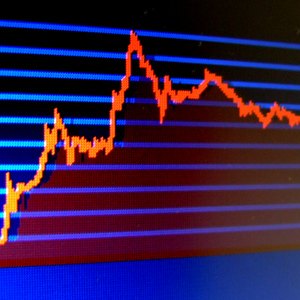
Stocks are a popular option for long-term wealth building through investing. The traditional way to buy stocks is to purchase 100 or more shares at a time through a stockbroker. This can cost thousands of dollars per trade. Investors with a small amount of money to invest can set up a program of regular monthly investing with brokerage companies that offer programs for small investment amounts.
Review the account fees and services of the companies that offer small amount, periodic stock investing. Companies that offer this type of service are ShareBuilder from ING, Folio Investing and BuyandHold. These companies allow regular investing in stocks, including fractional share purchase at costs starting at $4 per month.
Open an account with the company you selected, and set up an automatic, electronic investment in your account.
Select the stock or stocks you want to start investing in. If you are starting with $25 per month, a single stock will be appropriate. If you can afford more, it may be possible to start buying two stocks. BuyandHold allows two stock purchases with its basic investment plan. The investment services provide research resources to help you pick stocks.
Set up your account to automatically buy a set dollar amount of your selected stock each month. Remember to account for the brokerage fee. If you have $25 to invest and the fee is $4, set your investment amount at $21. Or deposit $29 every month so you can make a full $25 investment into your stock.
Tips
Beginner stock market investors should start with blue chip, quality stocks. The S&P dividend aristocrats list provides good candidates.
The more you can afford to invest, the less the fees charged by the investment plan will affect the return from the stocks.
Buying an equal dollar amount of a stock every month will allow you to dollar-cost-average your investment. You will buy more shares when price is low and fewer when the share price is high.
Warnings
Stock market investing can result in a significant loss of the invested money. It is important to understand the risks and do your own research before starting any investments.
References
Tips
- Beginner stock market investors should start with blue chip, quality stocks. The S&P dividend aristocrats list provides good candidates.
- The more you can afford to invest, the less the fees charged by the investment plan will affect the return from the stocks.
- Buying an equal dollar amount of a stock every month will allow you to dollar-cost-average your investment. You will buy more shares when price is low and fewer when the share price is high.
Writer Bio
Tim Plaehn has been writing financial, investment and trading articles and blogs since 2007. His work has appeared online at Seeking Alpha, Marketwatch.com and various other websites. Plaehn has a bachelor's degree in mathematics from the U.S. Air Force Academy.

